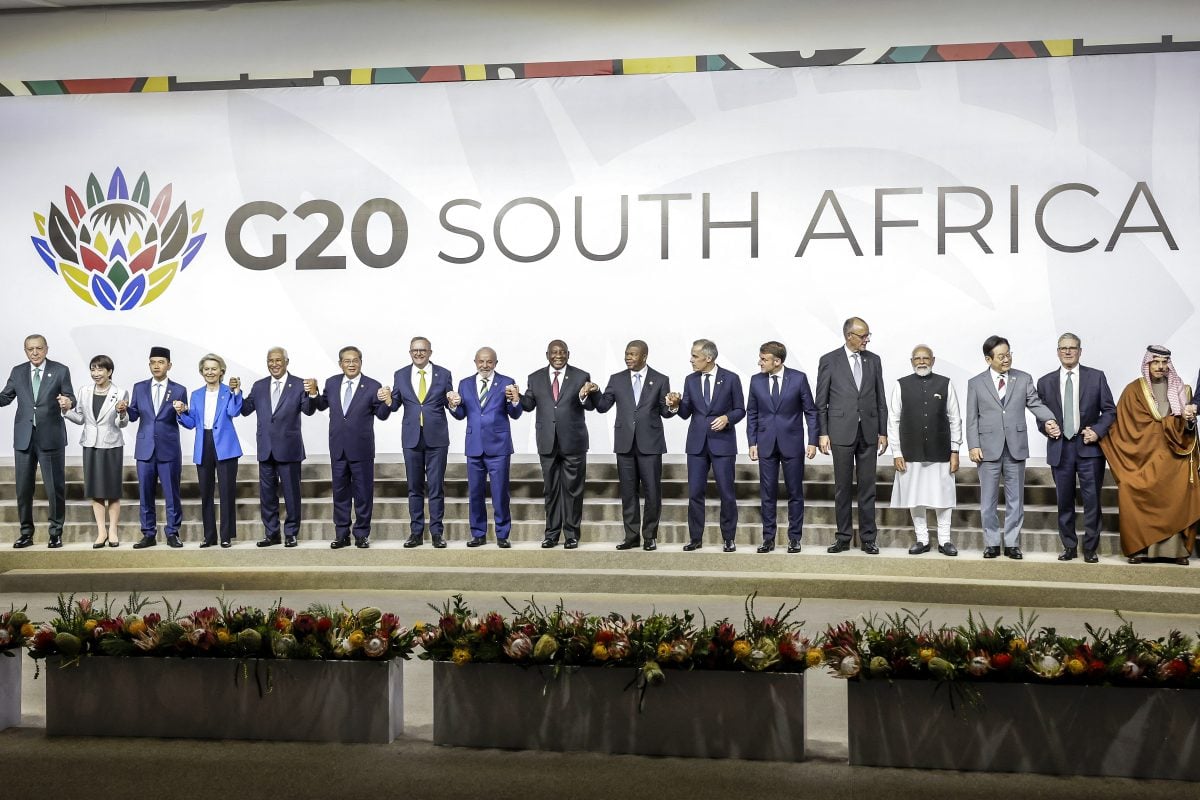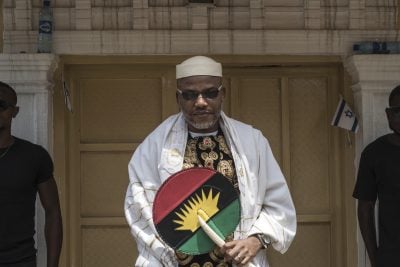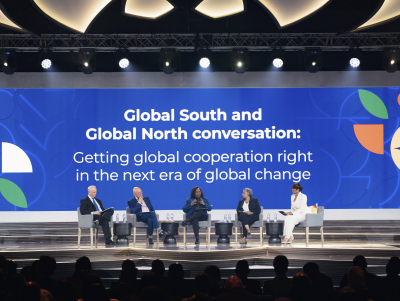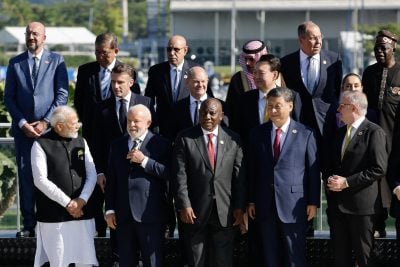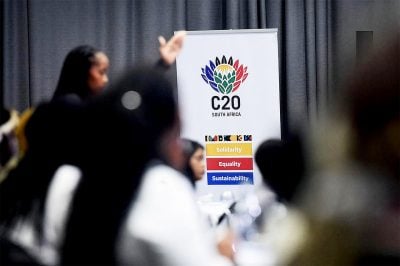World leaders have agreed to a joint declaration at the G20 Summit in Johannesburg despite US President Donald Trump’s boycott of the event.
The declaration, which host President Cyril Ramaphosa is likely to see as a vindication of South Africa’s agenda for the G20 in the face of concerted US pressure, leads with a call for more support for poorer countries in facing climate change and other disasters.
“We highlight the need to pay special attention to those already disproportionately impacted by disasters and that cannot afford the costs of adaptation, disaster mitigation, preparedness and recovery in particular, Small Island Developing States (SIDS) and Least Developed Countries (LDCs),” the declaration reads.
The declaration calls for the greater use of “affordable, inclusive and accessible pre-arranged financing mechanisms” to strengthen disaster risk reduction and preparedness.
The 30-page document goes on to reflect other pressing concerns of less economically developed countries that South Africa had prioritised in its agenda, including taking action to ensure debt sustainability for low-income countries; mobilising finance for just energy transitions; and harnessing critical minerals for inclusive growth and sustainable development.
On debt, the summit reaffirmed “our commitment to support efforts by low- and middle-income countries to address debt vulnerabilities in an effective, comprehensive and systematic manner.”
On critical minerals, the declaration pledged to support increased exploration, “particularly in developing countries” and called for “promoting diversification of mineral sources, routes, markets, processing locations, and value chains; enhanced value retention and beneficiation in mineral endowed developing countries” and the implementation of environmental, social and governance standards.
Ramaphosa hails declaration
While little that is covered in the document is dramatically new – calls for disaster response and climate adaptation echoed well-worn discussions at the just-concluded COP30 in Belém in Brazil – the fact that a leaders declaration has been achieved despite the absence of US President Donald Trump and his senior team will be viewed as a significant victory for the hosts.
In his opening address at the Summit on Saturday, Ramaphosa hailed the declaration.
“The adoption of the declaration from the summit sends an important signal to the world that multilateralism can and does deliver. It sends a message of hope and solidarity. It tells the world that as the leaders of the G20, we will keep fast to our solemn pledge to leave no person, no community and no country behind.”
Ramaphosa had put global inequality and the concerns of Africa at the centre of the country’s year-long presidency of the G20, an approach that drew the ire of the United States. Months before the summit, US secretary of state Marco Rubio accused South Africa of peddling a G20 agenda defined by “DEI [diversity, equity and inclusion] and climate change.”
Trump left on sidelines
Weeks before the summit, Trump confirmed that none of his cabinet members would attend, again citing his dicredited theories around the mass killing of Afrikaners. Vice-President JD Vance had for some months been expected to attend.
Argentina, led by Trump ally Javier Milei, who also did not attend the summit, did not endorse the declaration.
“Argentina, although it cannot endorse the declaration…remains fully committed to the spirit of cooperation that has defined the G20 since its conception,” its foreign minister Pablo Quirno said at the summit.
After months of attempting to soothe relations with the US following a disastrous Oval Office meeting between Ramaphosa and Trump in May, the US boycott of the event appears to have pushed South Africa into a much more assertive position, both in pushing its agenda for the Summit and insisting that the US respects diplomatic protocol.
With the US due to host the next G20 meeting in 2026, the South African government insisted that it will not complete a handover with a chargé d’affaires from the US embassy.
“The president will not hand over to a junior embassy official the presidency of the G20. It’s a breach of protocol that is not going to be accommodated,” said president spokesman Vincent Magwenya.
Want to continue reading? Subscribe today.
You've read all your free articles for this month! Subscribe now to enjoy full access to our content.
Digital Monthly
£8.00 / month
Receive full unlimited access to our articles, opinions, podcasts and more.
Digital Yearly
£70.00 / year
Our best value offer - save £26 and gain access to all of our digital content for an entire year!

 Sign in with Google
Sign in with Google 